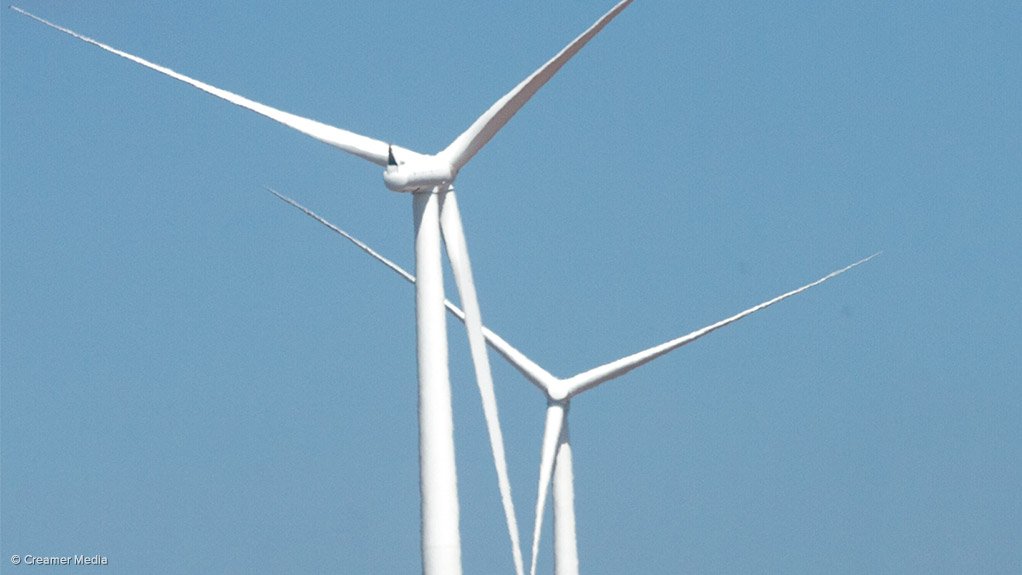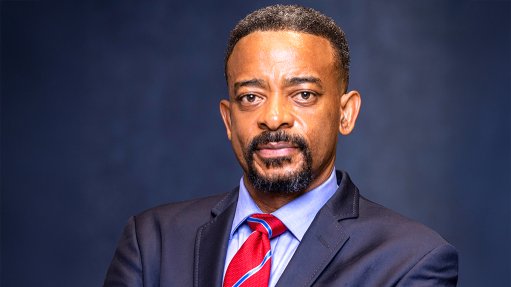Community engagement key for renewable-energy projects
Consulting and involving the communities living at and around renewable-energy projects is essential, agreed the participants in a panel discussion on the first day of the Windaba 2024 conference, at the Cape Town International Convention Centre. But it is not necessarily easy.
Community participation in these projects was a key component of social justice, emphasised Presidential Climate Commission project manager Lindiwe Johnson. Procedural justice and inclusion were key principles in South Africa. Such democratic approaches empowered individuals. Engaging communities increased the transparency of projects, because community members received explanations of budgeting processes and priorities. This, in turn, helped create accountability for decision-makers. It also started the process of communities buying in to the projects.
Business Unity South Africa energy and environment director Happy Khambule cautioned that many communities already felt exploited by business, and saw engagements by business with them as brief and shallow. In general, business was not doing community engagement with the depth and sophistication that it needed. Consequently, communities felt disgruntled. Nor did business do enough to involve the local communities in the projects being developed. This formed the background to the problem of the so-called business forums (extortion gangs), corruption mafias, and other gangs, operating from communities and seeking to extort money from project developers. The problem affected some sectors more than others, but it was spreading.
South African vertically integrated renewable energy infrastructure, generation and storage company SOLA Group stakeholder relations manager Khotso Selokoma put it more forcefully, saying that every community his company had gone into had been traumatised by previous promises, from project-developing businesses, that had never been delivered on. As a result, the communities simply did not believe their promises. Hard work was needed to establish relations and trust with the communities. It was like being an unqualified doctor yet having to diagnose what was wrong in each and every community. For example, why did a construction mafia exist in a particular community?
Complicating matters, he noted, was that the companies that actually built the renewable-energy array or farm were only concerned with the relevant community for two to four years; these contractors were focused on their deadlines and on avoiding penalties, not on community engagement. The actual independent power producers (IPPs), however, would be involved with the communities for decades. So, the renewables IPPs had to really engage with the communities.
Also, in terms of community engagement, what worked in one province could not simply be replicated in the other provinces, highlighted National Transmission Company of South Africa (NTCSA) chief planning engineer and transmission grid planner Caroleen Naidoo. (“Our role is sustainable electricity for South Africa, for our communities,” she explained.) When the NTCSA went into a community, it had to give them the full picture regarding the project, including such things as the environmental regulations, so that they could fully understand what was going on.
Further, even within the same province, what worked in a small community did not work in a big community. This point was driven home by renewable-energy group AMEA Power South Africa social specialist Bianca Jordan. As it developed more projects, the company was moving from deep rural areas with small communities to areas adjacent to larger towns. And these larger communities were relatively more developed and prosperous than small rural communities. These larger communities posed different challenges. A very basic one was: how did the company engage with them? Apart from the official structures and officers, such as the mayor, who did one contact? How did you find the key people in these communities, who were outside the official structures? It required a lot of research. A further complication was that, in these large communities, very few people experienced any direct benefits from IPP projects.
Article Enquiry
Email Article
Save Article
Feedback
To advertise email advertising@creamermedia.co.za or click here
Comments
Announcements
What's On
Subscribe to improve your user experience...
Option 1 (equivalent of R125 a month):
Receive a weekly copy of Creamer Media's Engineering News & Mining Weekly magazine
(print copy for those in South Africa and e-magazine for those outside of South Africa)
Receive daily email newsletters
Access to full search results
Access archive of magazine back copies
Access to Projects in Progress
Access to ONE Research Report of your choice in PDF format
Option 2 (equivalent of R375 a month):
All benefits from Option 1
PLUS
Access to Creamer Media's Research Channel Africa for ALL Research Reports, in PDF format, on various industrial and mining sectors
including Electricity; Water; Energy Transition; Hydrogen; Roads, Rail and Ports; Coal; Gold; Platinum; Battery Metals; etc.
Already a subscriber?
Forgotten your password?
Receive weekly copy of Creamer Media's Engineering News & Mining Weekly magazine (print copy for those in South Africa and e-magazine for those outside of South Africa)
➕
Recieve daily email newsletters
➕
Access to full search results
➕
Access archive of magazine back copies
➕
Access to Projects in Progress
➕
Access to ONE Research Report of your choice in PDF format
RESEARCH CHANNEL AFRICA
R4500 (equivalent of R375 a month)
SUBSCRIBEAll benefits from Option 1
➕
Access to Creamer Media's Research Channel Africa for ALL Research Reports on various industrial and mining sectors, in PDF format, including on:
Electricity
➕
Water
➕
Energy Transition
➕
Hydrogen
➕
Roads, Rail and Ports
➕
Coal
➕
Gold
➕
Platinum
➕
Battery Metals
➕
etc.
Receive all benefits from Option 1 or Option 2 delivered to numerous people at your company
➕
Multiple User names and Passwords for simultaneous log-ins
➕
Intranet integration access to all in your organisation





















